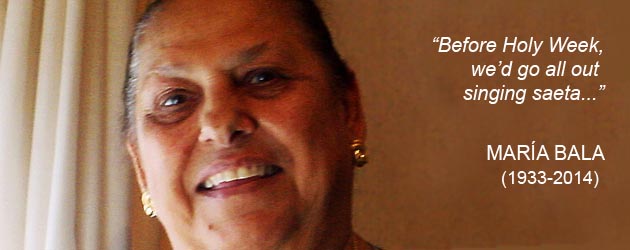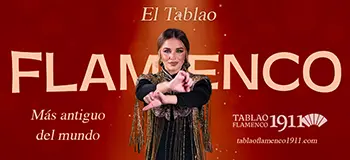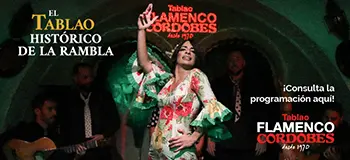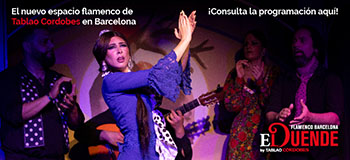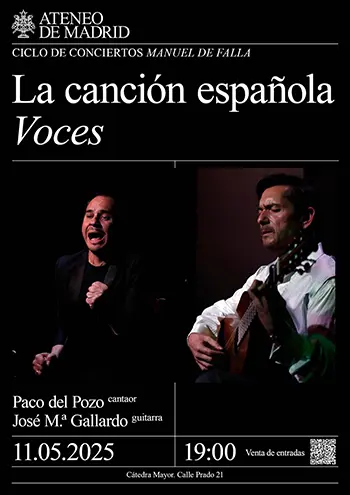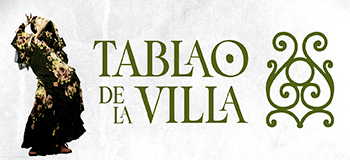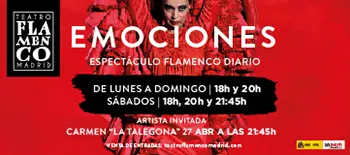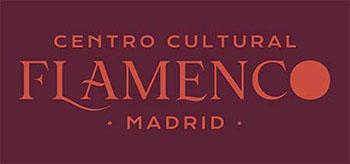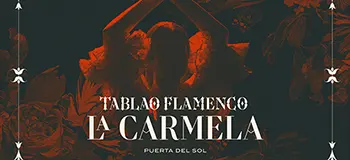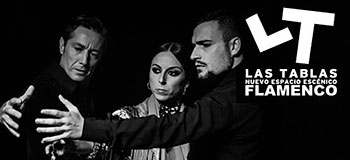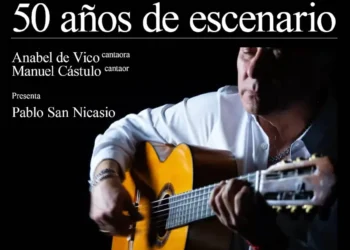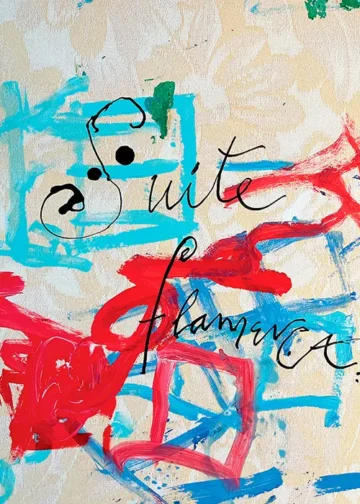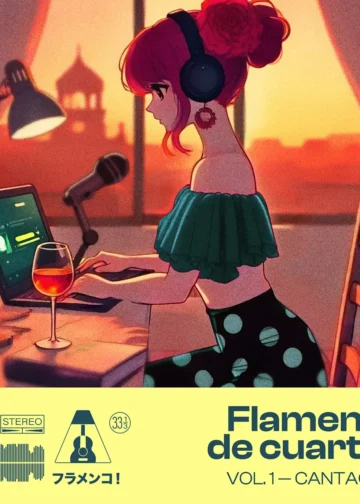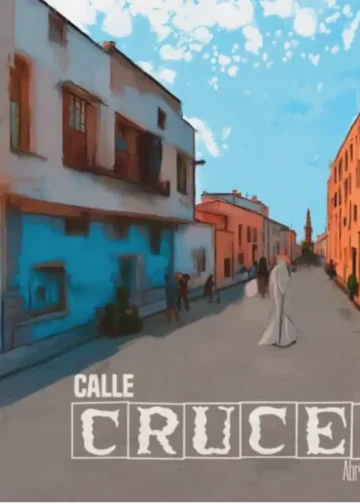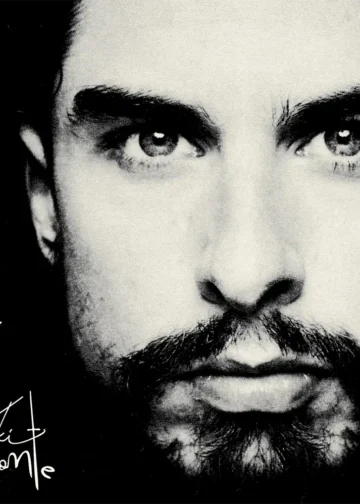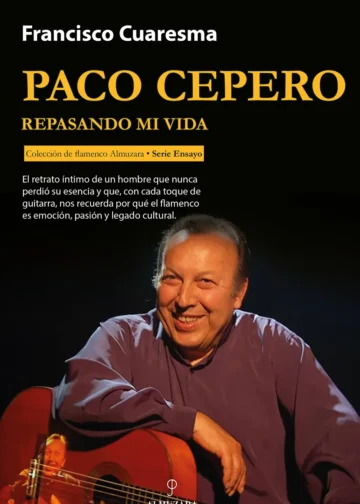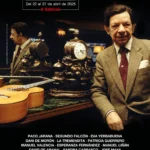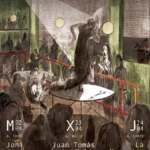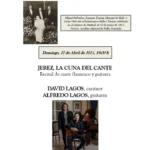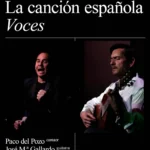Text and photos: Estela Zatania
«Before Holy Week, we'd go all out singing saeta…»
When we hadn’t even begun to assimilate the loss of our most admired flamenco artist, Paco de Lucía, another interpreter, little-known by flamenco fans, but very highly considered by a certain sector, also left us.
Behind today’s slick flamenco, there exists a backdrop of generations of humble people whose unassuming art gives a pungent flavor and color to the genre, while providing the foundations. These are people who understand little of pure and impure, or the amalgamated 12-beat compás, or “put it on 3 por arriba” or “I need more reverb”. They sing as naturally as they breathe, that was María Soto Monge, “María Bala” of the Sordera dynasty, sister of Manuel Soto “Sordera”, and aunt of current professional singers, Vicente and Enrique Soto.
In traditional Andalusian society, married women did not sing outside the home, and for this reason María Bala gave up all hope of becoming a professional. Nevertheless, when she went to work in the fields outside Jerez in the period following Spain’s civil war, she soon discovered how the hard life of a crop-worker was compensated night after night in the legendary gatherings in the gañanías, collective dwelling places that housed the workers who formed a large extended family, and the barriers came down.
In that atmosphere of poverty and privation, there was time to celebrate, and time to pray. In María Bala’s words: “We sang everything, bulería, soleá, siguiriya, tangos, fandangos…sometimes tonás, rumba…and before Holy Week we’d go all out singing saeta too…”
In 2007 María was interviewed, and left us these words and memories of those times as they appear in the book “Flamencos de Gañanía” by Estela Zatania.
María Bala speaks:
“Those fiestas don’t exist any more, and the people who are recording don’t really know about flamenco”.
The nickname “Bala”, bullet, comes from when I was small and I was very active and crying all the time. Who else have you spoken to? Tio Paulera? Oh yes, of course…and Gutiérrez… Now those people really know what it was like! Also the people of Juaniquí from Lebrija. I’m a little younger than them, about to turn 73. When I was single, I was at the farms Plata and Bohórquez, just a young girl of thirteen or fourteen, and Romanina was owned by the same people. Then I got married and went to the fields where my father-in-law was working, owned by the Domecq family, Romanito. But once I was married, I worked little in the fields, I was mostly in Jerez, so I was actually working the farms until about 24 years old, more than ten years, then my husband got a job here in Jerez.
Where we lived on the farms each one had a sort of makeshift mattress, we’d sit on the edge and it might get to be three or four in the morning. It was a cement barracks with these straw mattresses, no separation between then, each one just had that much space that the mattress occupied, and a place on the wall to hang baskets for bread, spoons and all that… The whole family would go to work in the fields, we had to walk out to whatever farm it was, Montecorto, La Peñuela… And on the weekends we went walking back to Jerez to wash up and get clean clothes, there was nothing else to do, and singing all the way to town…trucks would stop, “hey, jump in, I’ll take you to Jerez”, but no one accepted the offer, we were having fun singing our way home, no one wanted to miss that! That’s what it used to be like. I worked a lot with people from Lebrija when I was single, because my uncle was a manijero [a sort of group foreman] in Plata. My mother did the cooking, and all my brothers and sisters worked in the fields.
The men would pick beets, and the women had to load the trucks…then, it was the chick-pea season, then the olives, cotton, corn, grapes…always rotating among the different farms of course. When I picked grapes, I went to Pastranilla, in the direction of Sanlúcar, we used to spend a couple of weeks, then back home again, and we didn’t want to return to Jerez because we were happy there, such a good atmosphere…
“A hard day’s work, then singing and dancing every night, that was our life”
Not everyone can understand this. In order to understand flamenco singing, you have to live with someone who sings, and you hear them all the time, and then you say “this one sings, but that one doesn’t”. Nowadays everyone is a flamenco singer, but that’s not how it is, not just anyone can sing, I sing in a way that’s different, I don’t mean to brag, but no one taught me. I hear people sing, I like some of them, maybe others I don’t, but I sing my own way, and my brothers too. My brother Manuel [Soto “Sordera”] was a professional in Madrid at a very early age, he was only 20 when he left, a wonderful person and a terrific singer. When he came down to Jerez, when our mother was alive, he’d hear me sing and he’d cry: “how can my sister sing like this?!” No one had ever heard me, and I sing my own way.
During those years in the fields, we used to go to bed at two, three or four…in the morning we got up to work and when we’d finished the day, it was singing and dancing every night, that was our life, boiled chickpeas every day, morning and night, it was hard, and yet I didn’t mind. I really liked working on the farms, but then things happen… I got married and my husband, he was a good man, but a little strange, he didn’t want me to sing anywhere except within the immediate family. If my brother came over, there could be three straight days of fiesta, but he wouldn’t let me sing outside the house. Over time, you forget things. I’m 73, and I can’t sing like I used to. My nephew Vicente Soto has some recordings we made in his house. My daughter is 47 years old with a serious health problem, and for twenty years I was going regularly to Madrid to see the doctors, so I used to always go to the house of my brother Manuel, and we would always sing. Vicente still has those recordings. I say to him “come on, give me the recordings so I can listen to them once in a while”, because now I listen to what I used to sing and I say “did I really used to sing like that?”, but he says “nobody gets those tapes auntie!” In my familly we all sing flamenco, José Mercé is another nephew of mine, the Zambos, my brother Manuel’s boys…
“My nephew Vicente Soto still has the recordings I made at his house”.
My mother used to sing a little, and she was a fantastic dancer of soleá. When I was nine I would sing por soleá, but my father, Enrique Soto Junquera was his name, had never heard me. When I was a child I slept with him, he kept compás on his chest and he would say “I can’t believe how this little one sings!” I sang soleá, bulerías, fandangos…always without guitar, there was never a guitar out at the farms, just palmas, and everyone sang and danced, gypsy or not, everyone together…it’s only logical, that’s how I was brought up. There are plenty of non-gypsies who are fantastic singers and dancers, that’s how it was on the farms where we all lived together.
Then this thing of mine happened…the house burned down and I lost my children, 9 and 14 years old, both of them. I wore black for fifteen years…so many things have happened. Now I’ve got four grown children, but none of them sings…but my brother Manuel has seven children, and they all sing or dance. Those ones of mine I lost, they sang very well… My husband didn’t even know how to do palmas, but he loved flamenco singing!
But let me tell you, those times I lived through, what I enjoyed when I was single, those were the best years of my life. After I got married, I didn’t see anything any more. I’d give anything to go back to those hard times working in the fields, that was the best in the world, my God, that was really something… If only those times would return…I’d be the first one to sign up, even at the age I am now, just think of what I’m saying! All the hardship, the cold, the heat, the rain, whatever, but we were all so happy and just kept moving forward…now, all there is between people is envy and mistrust.
”There was never a guitar out at the farms, just palmas, and everyone sang and danced, gypsy or not, everyone together…”
We used to sing in the gañanía, but also I the field, a team of men and women, and each one would sing what they knew. I always sang bulerías, the sevillanas of the Lebrija people and fandangos. At night in the gañanía people sang more things like siguiriyas and all that, but I didn’t get into siguiriyas, my thing was soleá, I’m talking about at night, bulería pa’ escuchar [soleá por bulería], tangos… Trillas, no, that wasn’t something we did, we never sang that in Jerez, the person who was doing the threshing sang it. But let me tell you one thing…there are no get-togethers like that any more…I remember a friend of mine who got married, and we were singing and dancing all week! I never liked to get drunk, so I didn’t drink the whole time, because I love “cante”. Sometimes we’d work up a pretend wedding, but just as if it were for real, with anyone who happened to be around: “come on, so-and-so is going to get married!” Just like that, and we’d celebrate the “wedding”! Those fiestas don’t exist any more, the people who are recording don’t really know about flamenco, and the people who know about flamenco aren’t recording.
Tío Borrico was my mother’s family, he heard me sing and said “who taught you how to sing, child?” A lot of great artists were formed in those fields during that era, Tío Borrico, my brother Manuel Soto “Sordera”, Manuel el Serna, Manolito Jero, El Guapo, Periñaca… I never worked at the same farm with Serna, but I knew him here in Jerez, he lived on Marqués de Cádiz Street, and we lived on Cantarería, but in the Santiago neighborhood nothing is left, no one. Between one thing and another, one might sing better, another might sing worse, in those days a few were able to make a modest living with their singing, but not everyone wanted that, many people just wanted to work in the fields. I never became professional because I got married and my husband would hear nothing of it, but if I’d remained single, I’d have become a professional singer for sure. I recorded a soleá with Moraíto, he came with his guitar one day and said “come on, please, sing a little something for me”. I didn’t want to, but my kids begged me, “Mom, please do it, please”. So I sang some soleá, I was a little nervous, but it came out nice.
I liked Camarón a lot. He came here to Jerez in Semana Santa and there was a big fiesta with Tío Borrico and some old gypsies, and he heard me sing and said “how this gypsy lady can sing!” When I was single I saw a lot of fiestas, the rich landowners would call us for their parties, el Conde de los Andes, but they hardly gave us anything, it was very unfortunate. Nowadays, when you go to sing someplace, you make a little money, but what they’re doing to flamenco is a crying shame. Then they tell you it started with Camarón, and yes, it’s true that Camarón renewed flamenco singing, but it’s not that. Afterwards people started down a path that has nothing to do with flamenco, and the time will come when all this is lost.
Extracted from “Flamencos de Gañanía” (Seville, 2007), pp. 138-141, reproduced with permission of Ediciones Giralda.



